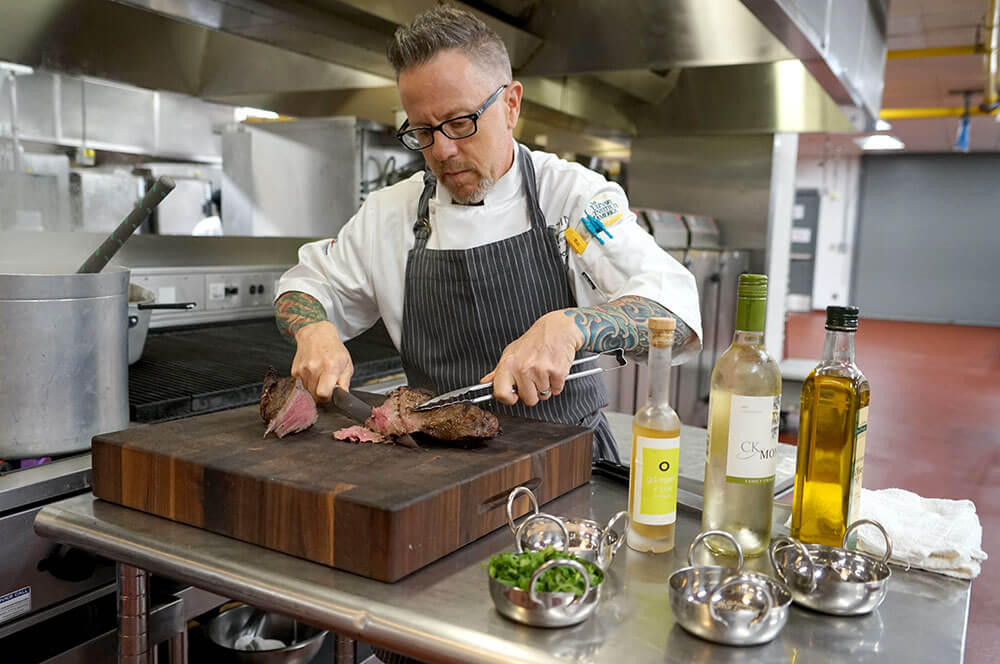
Brad Kelly, executive chef at Austin Convention Center, says dietary restrictions versus preferences are his biggest challenges. (Courtesy Austin Convention Center)
With special-food requests on the rise, event planners — and chefs —must please large groups with ever-larger lists of what they will, won’t, or can’t eat.
The challenge is accommodating diets ranging from halal to vegan without needing a buffet table that wraps three times around the convention center — and doing it under such additional pressures as attendees’ wanting locally sourced ingredients and limited food waste and clients wanting to hold the line on F&B costs.
The way forward, chefs and planners say, is creativity and flexibility. Austin Convention Center Executive Chef Brad Kelly recently spoke with Convene about what that means.
“Feeding large groups is always a logistical challenge, as there is not one ‘fits-all’ formula to do this,” Kelly said via email. “Each group has its own individual needs and wants … [and] as trends change it is imperative that we are all flexible and able to adapt to the wants and needs of our clients.”
Kelly, who has been in his role at the Austin Convention Center for more than 17 years, said that dietary restrictions versus preferences are currently “my biggest challenges,” adding that gluten-free requests outnumber the others.
While the number of dietary restrictions keeps growing, meeting them, Kelly said, has gotten a bit easier in that “there are many more products available in the market these days, easing the burden of additional production.”
The convention center has been successful, he said, in incorporating “items that already fit into the categories of GF [gluten free] and vegan into our existing menus. … This enables us to have a diverse menu mix based on flavors and variety and not on dietary restrictions.”
“As a chef,” Kelly added, “I am always trying to produce the most flavorful, appealing food possible. Because you have a restriction, you should not be pigeonholed into a category because it fits many needs.”
It used to be that your “special request” meant that “you were given the fruit plate and steamed veggies,” he said. But, he added, “there is a fine balance with being a creative culinarian and a nutritionist. We are not the latter, so it is impossible to decipher the requests of wanting something low-fat, sodium-reduced, no-processes added, etc.”
But within reason, “Specific information requested by planners and sales teams enables chefs to do what they do best — make great tasting foods.”
Cristi Kempf is executive editor at Convene.
